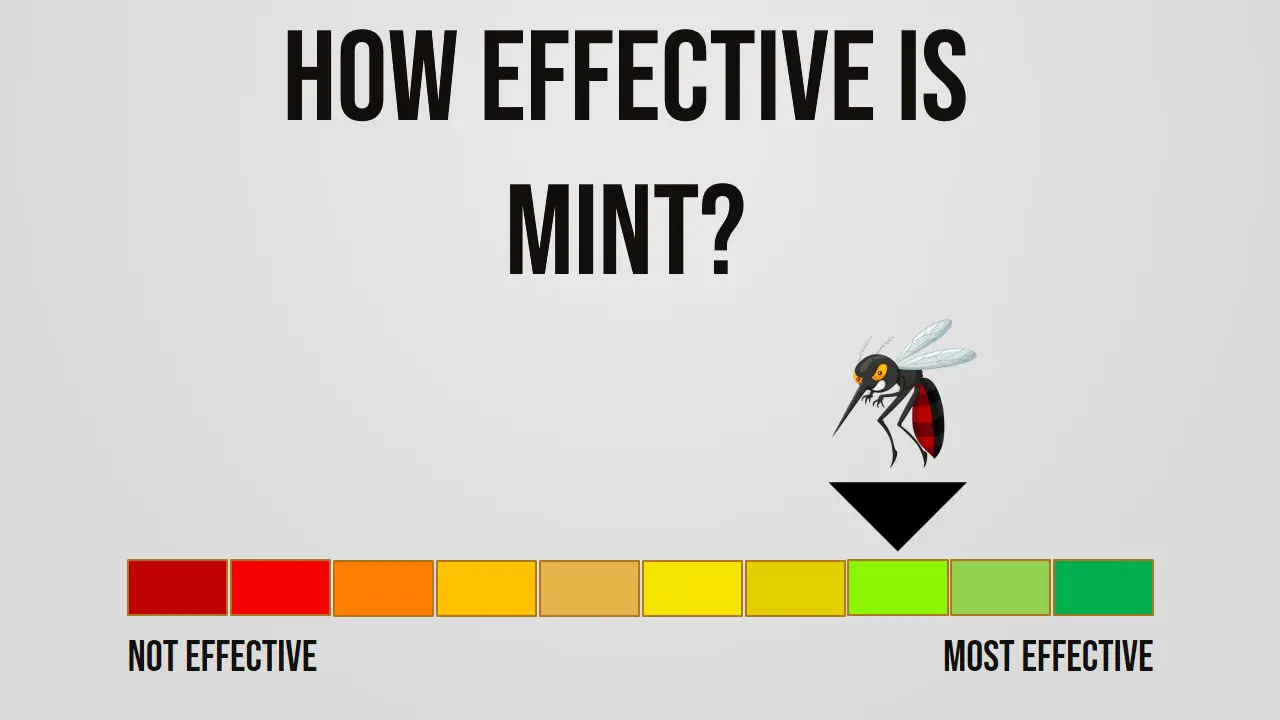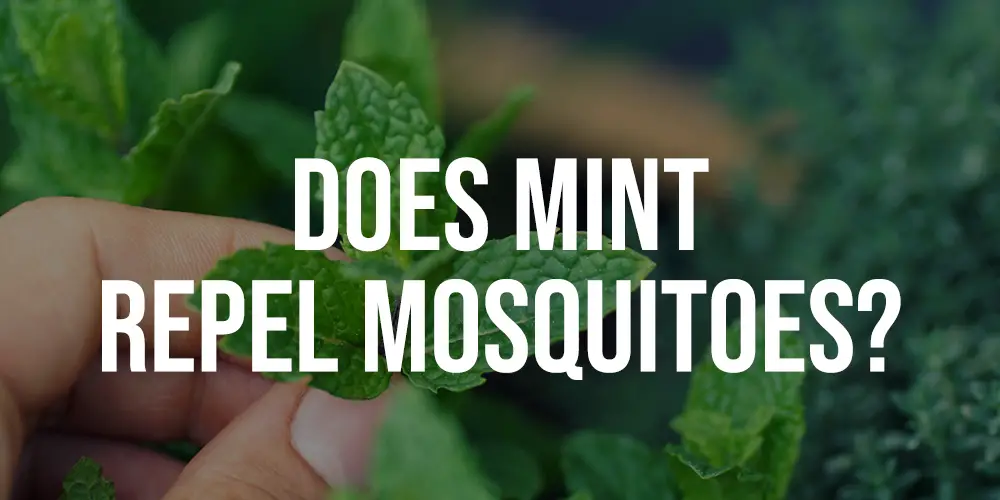If you’re looking for a natural way to keep mosquitoes at bay, mint might be worth a try. Some people swear by the mosquito-repelling properties of this fragrant herb, and there’s some science to back it up.
There is one particular variety of mint or Mentha in the genus of the mint family (Lamiaceae) that has shown to be an effective mosquito repellent; peppermint (Mentha piperita).
The conclusion of a 2011 study showed that “(t)he isolation of active ingredient from the oil could help in formulating strategies for mosquito control.” (1) The study shows that peppermint oils are an effective mosquito repellent for both adult and larvae.

What Is Mint?
Mint is a perennial herb that’s part of the Lamiaceae family, which includes other aromatic herbs like rosemary, oregano, basil, and sage.
There are many different varieties of mint; including peppermint, spearmint, chocolate mint, and water mint. Peppermint seems to be the most popular mint and is used in many different ways; from flavoring foods and drinks to being used as a natural remedy for many ailments.
The plant itself is very easy to grow, which might be one of the reasons why it’s so popular. In addition to being useful as a mosquito repellent, peppermint oil leaves and oil has shown to be a helpful medicine. One benefit relating to mosquitoes is that mint can help relieve itching from mosquito bites. (2)
How Do Mint Plant Help Mosquito Outbreaks?
Mint plants contain a compound called menthol, which has been shown to control mosquitoes in studies. (3) Menthol is a chemical that is naturally found in peppermint and other mint varieties of plants. However, menthol can also be made synthetically in a lab. In one study, scientists found that applying a lotion containing menthol to people’s skin helped keep mosquitoes away for up to two hours
While minty repellents might not be as strong as chemical insecticides, they’re certainly worth a try if you’re looking for a more natural way to keep these pesky mosquitoes at bay. And, since mint is such a common herb, it’s easy to find and relatively cheap to buy.
So, if you’re looking for a natural way to keep mosquitoes at bay, give mint a try. You might just be surprised by how well it works!
Mint Used in Combination with Other Natural Oils
To prevent the outbreak of mosquito borne diseases like Dengue which can be transmitted by mosquito bites many seek alternatives to DEET. Thus the use of mosquito repellents to protect us, we wisely seek strategies to reduce the mosquito population.
On its own, the repellency of mosquitoes from mint varied in time based on concentration levels. Moreover, when adding vanilla oil (vanillin) to a mint oil the evaporation time of the oil reduces; thus, prolonging the efficacy of mint as a mosquito repellent.
A study in 2020 shows in combination with vanilla oil, mint oil increased its usage time by 120 minutes. (4) The study cited used a 5% addition of vanillin to the mint oil. In addition, the concentration of mint at 25%, 50%, and 100% concentration, displayed a respective protection time of 45 min, 90 min, and 165 minutes.
Based on the aforementioned data, it seems that using mint oils as a mosquito repellent is a great option for those of us seeking a natural mosquito repelling alternative to harsh chemicals. Like most natural repellents, we highly recommend using a small amount to start to makes sure your skin does not have an adverse reaction to the oils.
References
- Bioefficacy of Mentha piperita essential oil against dengue fever mosquito Aedes aegypti L
- Anti-nociceptive and anti-inflammatory effects of some Jordanian medicinal plant extracts
- Peppermint & Peppermint Oil Profile Active Ingredient for Minimum Risk Pesticide Use
- Larvicidal and Repellent Activity of Mentha arvensis L. Essential Oil against Aedes aegypti

